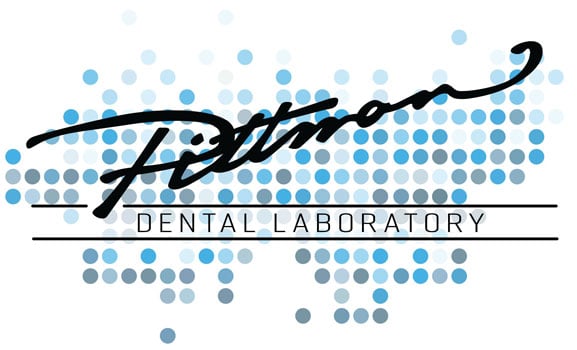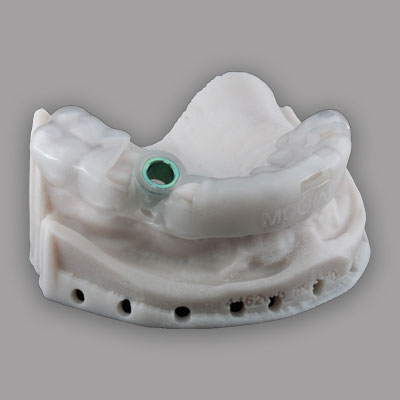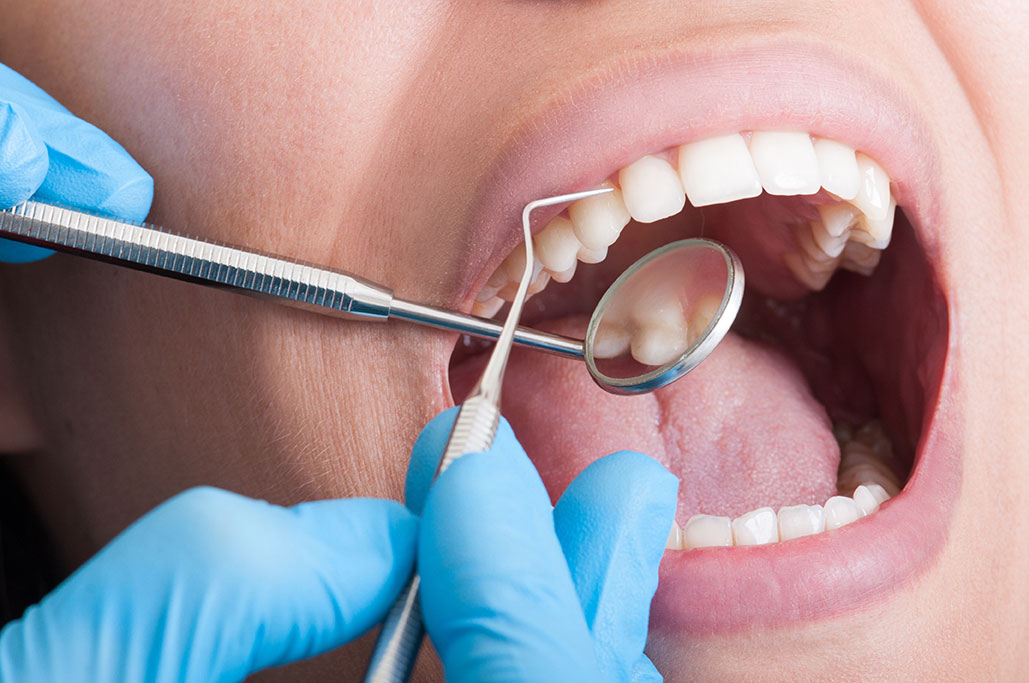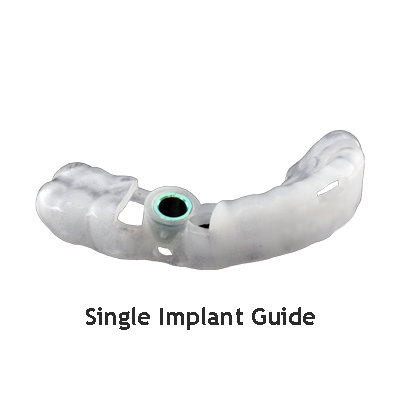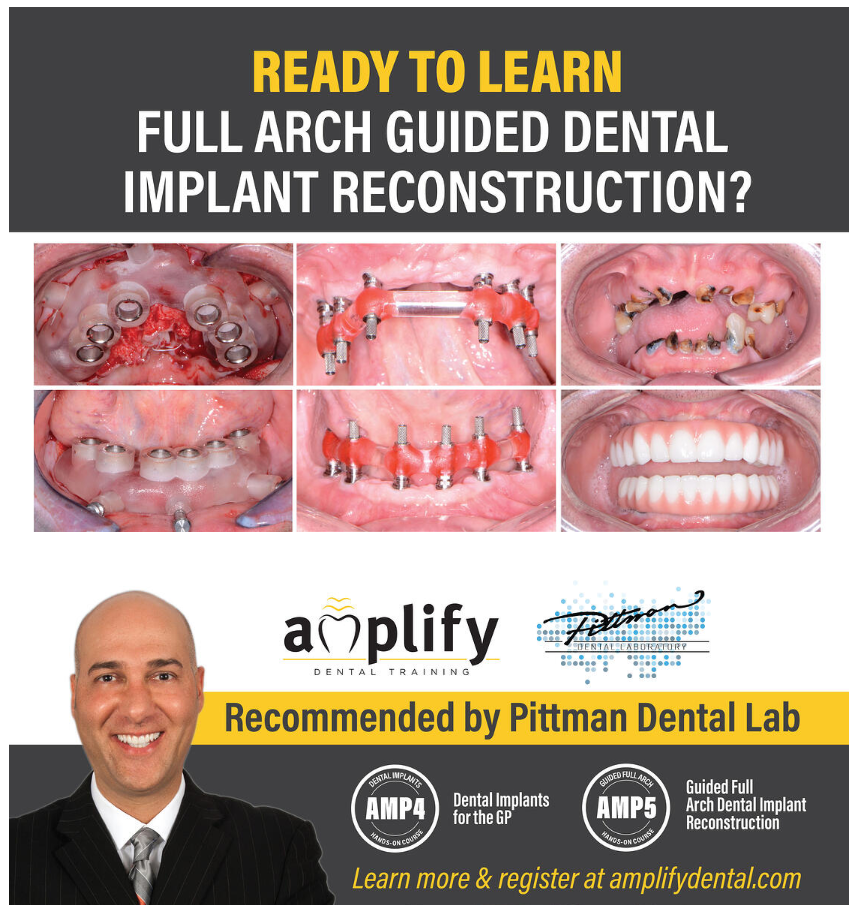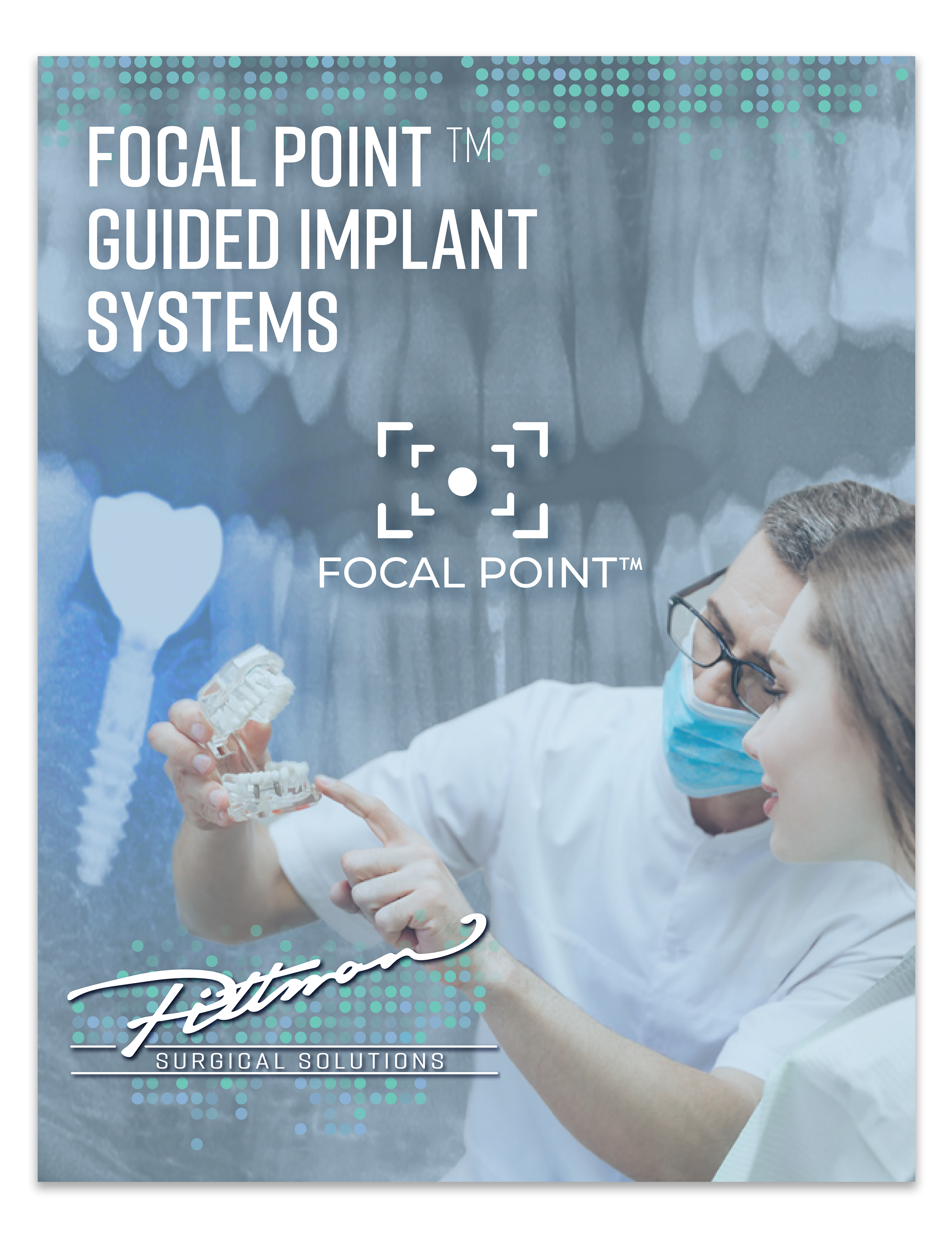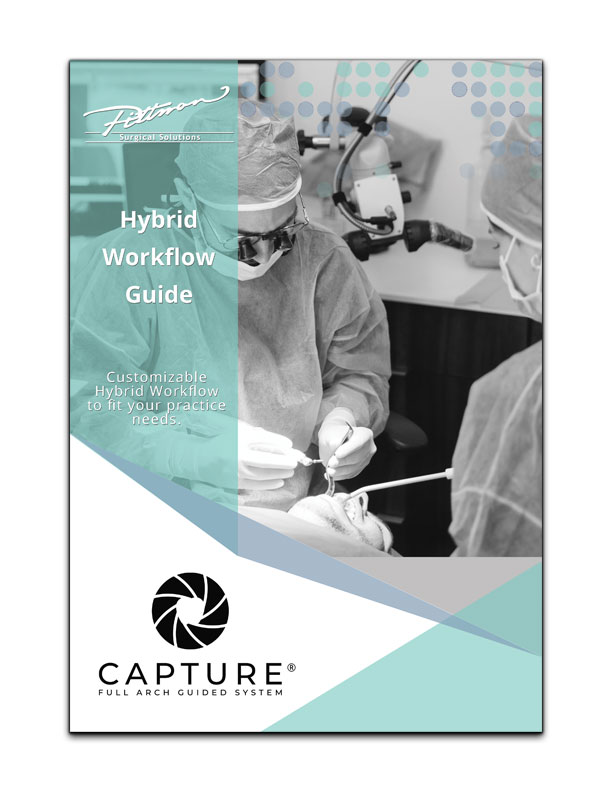Dental implant procedures have undergone significant advancements in recent years, offering both dentists and patients innovative options for tooth replacement. Two primary approaches have emerged in the world of implantology: guided dental implant systems and freehand dental implants. At Pittman Dental Laboratory, we have witnessed the evolution of these techniques, each presenting its unique set of advantages and challenges.
Guided Dental Implant Systems:
Guided dental implant systems have gained popularity for their precision and predictability. This method involves the use of 3D imaging technology to create a detailed digital map of the patient's oral anatomy. Through computer-guided planning, the dentist can precisely determine the ideal implant placement and angulation, minimizing the margin for error.
Positive Aspects:
1. Enhanced Precision: One of the key advantages of guided systems is the high level of accuracy they provide. Dentists can achieve precise implant placement, reducing the risk of damage to surrounding structures.
2. Shorter Procedure Time: With a pre-determined surgical plan, the actual implant placement procedure tends to be quicker, resulting in reduced chair time for the patient and less discomfort.
3. Predictable Outcomes: Guided implant systems allow for a more predictable outcome, improving the long-term success of the implant. This is particularly beneficial for complex cases or patients with compromised bone density.
Negative Aspects:
1. Learning Curve: Dentists need a system to follow to become proficient in using guided systems. At Pittman Dental Laboratory, our implant team guides the Dentist from beginning to end with online case reviews, onsite facial analysis, drill reports, implant reports and chairside assistance if needed. Dentists can also start with one or two implants with our Focal Point® system before going on to Capture® our all on X guided system.
Freehand Dental Implants:
Freehand dental implant procedures rely on the dentist's experience, skill, and tactile feedback during surgery. This traditional approach allows for greater flexibility and adaptability during the implant placement process.
Positive Aspects:
1. Cost-Effective: Freehand dental implant procedures generally require less investment in technology and training. This makes them a more accessible option for dental practices with budget constraints.
2. Experience-Dependent: Dentists with extensive experience in implantology may find the freehand approach more intuitive. The tactile feedback during surgery allows for on-the-spot adjustments based on the patient's unique anatomy.
Negative Aspects:
1. Limited Precision: The main drawback of freehand implant placement is the potential for less precise outcomes compared to guided systems. This can lead to suboptimal aesthetic results and increased risk of complications.
2. Extended Procedure Time: Without the aid of computer-guided planning, the dentist may spend more time during the surgery assessing and adjusting, potentially leading to longer procedure times and increased patient discomfort.
Conclusion:
Choosing between guided and freehand dental implant procedures involves weighing the pros and cons based on individual patient cases, practitioner expertise, and the financial considerations of the dental practice. While guided systems offer unparalleled precision, freehand techniques provide a more cost-effective and experience-dependent alternative. Ultimately, the decision rests on the dentist's comfort level, training, and commitment to delivering the best possible outcomes for their patients.
Pittman Dental Laboratory Blog
Navigating Precision: Guided vs. Freehand Dental Implants
Topics: Oral Surgeon, Focal Point, Guided surgery, Capture, All on X
Title: Promising Experimental Medicine May Revolutionize Dentistry
Topics: Dental Implants, Focal Point, Guided surgery, Capture, All on X, Dental Technology
Pittman Surgical Solution Guides: Guiding You to Dental Excellence
When it comes to dental surgery, precision is paramount. Whether you're a dentist looking to provide your patients with the best care possible with less chair time or a patient seeking a seamless dental experience, Pittman Surgical Solutions has you covered. We provide many options for dentists to choose from with our innovative dental surgical guides.
What Are Dental Surgical Guides?
Dental surgical guides are essential tools that enhance the accuracy and predictability of dental procedures, including dental implant placements, extractions, and various other oral surgeries. These guides are custom-designed for each patient, ensuring that the treatment plan aligns perfectly with their unique dental anatomy.
Topics: Dental Implants, Oral Surgeon, Focal Point, Guided surgery, Capture, All on X, CAD/CAM
Elevate Your Dental Practice with Amplify Dental Training
In the dynamic field of dentistry, staying at the forefront of knowledge and skill is crucial for providing the best care to your patients. Dentists looking to expand their expertise and practice offerings need not look further than Amplify Dental Training. This educational institution has steadily grown over the years, offering a wide range of courses that empower dentists with the skills needed to excel in their careers.
Led by the esteemed Dr. Ara Nazarian, a practicing general dentist with a wealth of experience, Amplify Dental Training distinguishes itself by offering courses that are not only informative but also presented in a friendly, practical, and easy-to-understand manner. Dr. Nazarian's teaching style is rooted in real-world clinical cases, documented extensively through photography and video, making the learning experience immersive and engaging.
One of the hallmarks of Amplify Dental Training is its commitment to hands-on learning. Over the years, the institution has trained thousands of dentists who have collectively treated thousands of patients. Attendees have extracted more than 20,000 teeth and completed grafting procedures on over 5,000 sites, all performed on actual patients provided by the training program. This invaluable hands-on experience ensures that dentists leave the program with a high level of clinical competence.
Amplify Dental Training's dedication to its students extends well beyond the duration of the courses. The institution strives to build lasting relationships with its attendees, making assistance and support available for years after they complete their programs. This ongoing support ensures that dentists continue to grow and evolve in their practices throughout their careers.
One of the unique features that set Amplify Dental Training apart is its comprehensive live-patient extraction and grafting programs. Unlike many other programs, here, students actually get to work on live patients provided by the institution. The opportunity to perform procedures on real patients under expert guidance is unparalleled and greatly enhances the learning experience.
When considering dental training programs, it's essential to evaluate the opportunities for hands-on experience and the level of patient interaction. Amplify Dental Training stands out as a leader in live-patient learning, and they encourage potential students to compare their offerings with other programs in the U.S. Ask about the number of procedures you'll perform, the availability of patients, and the level of practical experience you'll gain – and you'll find that Amplify Dental Training offers a truly exceptional educational experience.
Amplify Dental Training and Dr. Ara Nazarian are privileged to have the support and sponsorship of Pittman Dental Laboratory and Surgical Solutions. As a testament to their commitment, Pittman offers exclusive discounts and pricing for students enrolled in the training program. This partnership further enhances the value and accessibility of the educational experience provided by Amplify Dental Training. If you're a dentist looking to elevate your skills and expand your practice offerings, Amplify Dental Training should be at the top of your list. With its exceptional faculty, comprehensive programs, commitment to hands-on learning, and ongoing support, it's the ideal destination for dentists who aspire to reach new heights in their careers. For more information contact kim@pittmandental.com or go to https://www.amplifydental.com/
Topics: aquiring new patients, Guided surgery, Capture, dental training
Dental implants can offer several benefits that can positively impact a person's health. Here are 7 ways dental implants can improve overall health:
Dental implants can offer several benefits that can positively impact a person's health. Here are 7 ways dental implants can improve overall health:
Topics: Dental Implants, Oral Surgeon, Focal Point, Guided surgery, All on X
Guided Versus Non-Guided Dental Implant Placement: A Path to Success
When it comes to dental implant placement, dentists and oral surgeons have two primary approaches: guided and non-guided. Understanding the difference between these methods is crucial for professionals to effectively communicate with their patients and ensure a successful outcome. In recent years, guided implant placement has gained popularity due to its numerous advantages and improved patient experiences.
Topics: Dental Implants, Oral Surgeon, Focal Point, Guided surgery, Capture, hybrid workflow, All on X
When a patient decides to get All-on-4 dental implants, which is a technique used to restore a full arch of teeth, they will typically go through several steps. Here's a general overview of the process:
1. Initial Consultation: The patient will schedule an initial consultation with a qualified dentist or oral surgeon who specializes in dental implant procedures. During this consultation, the dentist will assess the patient's oral health, evaluate their jawbone density and structure using X-rays or CT scans, and discuss their dental history and expectations.
2. Treatment Planning: Based on the evaluation, the dentist will create a customized treatment plan for the patient. This includes determining the number of implants required, identifying the optimal implant positions, and discussing the materials to be used for the prosthetic teeth.
3. Preparatory Procedures (if necessary): In some cases, patients may require preparatory procedures before the implant surgery. This can include tooth extractions, bone grafting to enhance the jawbone density, or treatment for any existing oral health issues like gum disease.
4. Implant Surgery: On the day of the surgery, the patient will be given anesthesia or sedation to ensure their comfort. The dentist will then surgically place the dental implants into the jawbone. The All-on-4 technique involves using four implants per arch, strategically positioned to maximize support and stability.
5. Temporary Prosthesis: Following the implant surgery, a temporary prosthesis (denture or bridge) will be attached to the implants. This temporary restoration allows the patient to have functional teeth while the implants integrate with the jawbone during the healing period, which can take a few months.
6. Healing and Osseointegration: Over the next few months, the implants will gradually fuse with the surrounding jawbone through a process called osseointegration. This provides a strong foundation for the permanent prosthesis.
7. Final Prosthesis Placement: Once the osseointegration is complete, the patient returns to the dentist for the placement of the final prosthesis. This prosthesis is custom-made to match the patient's natural teeth in terms of color, shape, and size. The dentist will attach the prosthesis securely to the implants, ensuring proper fit and aesthetics.
8. Follow-up Care: After the All-on-4 procedure, the patient will have follow-up appointments with the dentist to monitor their healing progress and ensure the long-term success of the implants. Regular check-ups and proper oral hygiene practices are crucial to maintaining the health of the implants and prosthesis.
It's important to note that while the above steps provide a general outline, the exact process may vary depending on the patient's individual needs and the specific protocols followed by the dentist or oral surgeon.
Topics: aquiring new patients, Dental Implants, Oral Surgeon, Focal Point, Guided surgery
